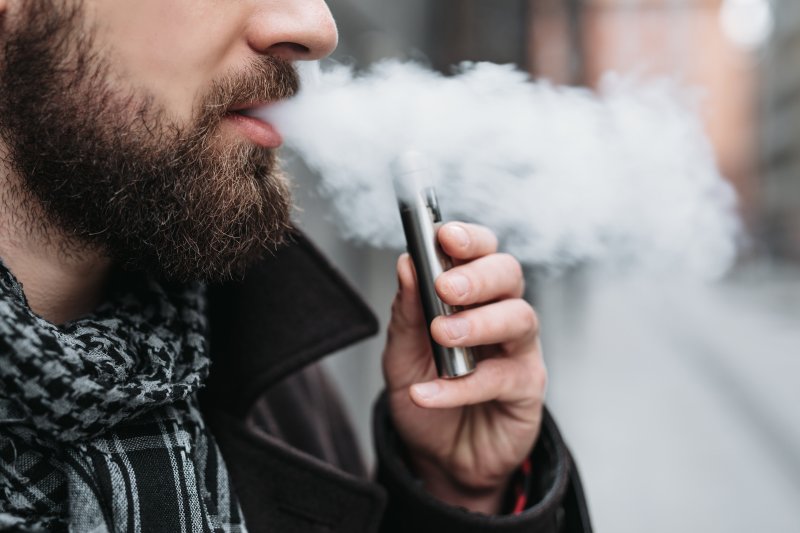
It’s now a well-known fact that smoking is bad for one’s health. However, that doesn’t change the fact that millions of people still desire the nicotine rush that cigarettes provide. To take a less detrimental route, many smokers have turned to e-cigarettes (vaping). Because it doesn’t require combustion, it’s assumed to be a better method of smoking. Studies show that it could exacerbate the symptoms of sleep apnea in State College, though. Continue reading to learn about the connection between the sleep breathing disorder and vaping.
Vaping Explained
Instead of relying on combustion, vaping consists of a cartridge or pod that contains nicotine and other chemicals like propylene glycol and glycerin. When heated, they form an aerosol that makes inhalation possible, and that resembles that of burning tobacco. Because of the absence of combustion and its carcinogenic traits, many people believe that vaping is harmless. Unfortunately, there are other problems that can still arise.
What is Sleep Apnea?
People with sleep apnea experience frequent and repeated stoppages in breathing throughout a normal sleep cycle. With each interruption, the brain sends a distress signal that triggers the person to awaken. After happening sometimes hundreds of times throughout the night (which isn’t uncommon), the person suffering from sleep apnea can be left feeling tired and lethargic during the day. To make matters worse, untreated, the condition can contribute to hypertension, diabetes, stroke and heart disease.
How Vaping Can Make Sleep Apnea Worse
One of the primary reasons that vaping amplifies sleep apnea symptoms is that it contains nicotine. The following explains how it can lead to further sleep interruptions:
- Nicotine heightens mental alertness and increases adrenaline production, which raises heart and breathing rates, and elevates blood pressure.
- It’s harder to get into the deepest stage of sleep, which is REM (rapid eye movement). That’s because there can be withdrawal symptoms from lack of nicotine that interrupt the body’s natural circadian rhythm.
- Nicotine usage causes inflammation of the nose, throat and lungs, which can further contribute to nighttime breathing issues.
The Importance of Being Treated
If you vape and happen to be a loud snorer, have trouble concentrating during the day, or deal with depression or frequent mood swings, there is a chance that you’re suffering from sleep apnea. While avoiding vaping is a good start to getting some relief, it’s not enough on its own. Thus, it’s important to be properly diagnosed and treated. With expert care from your local sleep dentist and some healthy lifestyle changes, you can overcome your bouts of sleep apnea and go on to achieve greater wellness and happiness.
About the Author
Dr. Donald Marks is a graduate of the University of Pittsburgh School of Dental Medicine. With decades of experience practicing dentistry, each patient he sees is able to benefit from the perfect combination of knowledge and compassion that he provides. An expert in treating sleep apnea, Dr. Marks promotes proper rest at State College Dental Sleep, and he can be reached for more information through his website.
